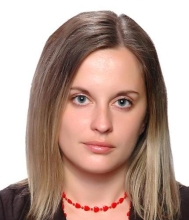By Biljana Lajmanovska

You put a ballot in the box, you cast a vote and you make your choice. Candidates rally, fight for every vote, try to explain why their program is better than the one offered by the opponent. In this sense, the U.S. elections are probably similar to the elections anywhere in the world.
Still, if you take a closer look at the way campaigns are led, at the whole electoral system, you can easily distinguish them. During my stay in Washington, D.C., and in Concord, New Hampshire, I got a chance to see these details, to understand the way U.S. media prepared the final days of the election coverage, to go to a rally, to have a feel of the true election night heat. And when I compare, it is easy to say that U.S. and Macedonian elections are different. But the most important thing probably was not that these elections for a U.S. president were different, but that they MADE A DIFFERENCE.
As a journalist, I have followed many election cycles in Macedonia and in the countries of the Balkan region. All elections are historic for one nation, because they bring changes - they show the strength of the popular vote and the right to be responsible for your own future. But very few of them are historic for the whole world. These elections for a new U.S. president were, and it was an honor to witness them.
When I was on my attachment in Concord, my colleagues from the New Hampshire Public Radio asked me often – why Macedonians are so interested in the U.S. election? Why do such far-away countries care who will be the next U.S. president? I will try to explain now.
While I was waiting for my flight to Skopje at Washington Dulles Airport, the new U.S. President-elect Barack Obama was giving his first press conference. He talked about his first steps, about the way he will try to get the U.S. out of the major economic crisis, etc.There was not a single person on that gate that did not turn his eyes to the TV – Americans and foreigners, listening with the same attention to every word. That is how one can see how much this person will mean to the world and how great expectations lay in front of him.
The writer is a reporter for Channel 77 Radio in Macedonia.